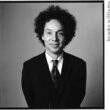The Art of Thinking Clearly
(Libby/OverDrive eBook, Kindle)
Available Platforms
Description
The Art of Thinking Clearly by world-class thinker and entrepreneur Rolf Dobelli is an eye-opening look at human psychology and reasoning — essential reading for anyone who wants to avoid “cognitive errors” and make better choices in all aspects of their lives.
Have you ever: Invested time in something that, with hindsight, just wasn’t worth it? Or continued doing something you knew was bad for you? These are examples of cognitive biases, simple errors we all make in our day-to-day thinking. But by knowing what they are and how to spot them, we can avoid them and make better decisions.
Simple, clear, and always surprising, this indispensable book will change the way you think and transform your decision-making—work, at home, every day. It reveals, in 99 short chapters, the most common errors of judgment, and how to avoid them.
More Details
Similar Titles From NoveList
Published Reviews
Booklist Review
*Starred Review* Why do we stay in bad relationships or stubbornly hold on to failing investments? Dobelli, author and founder of Zurich.Minds, a community of thinkers, explores the natural tendencies we have to think illogically and how we can overcome them. This is not a facile how-to book but a serious examination of the faulty reasoning that leads to repeated mistakes by individuals, businesses, and nations. Among the logical errors Dobelli explores are survivorship bias, or systematic overestimation of the chances for success, and social proof (otherwise known as herd mentality), or feeling that an action or decision is correct because so many others are doing the same thing. Herd mentality is often demonstrated in the stock market, triggering bubbles and panics alike. Dobelli warns against the influence of so-called experts, news anchors, beautiful people, teams of workers, and others, cautioning readers to learn to think clearly for themselves. He offers some 99 common errors, drawing on social science, psychology, economics, and politics for amusing and sobering examples of the failure to think logically. In this fascinating book, Dobelli does not offer a recipe for happiness but a well-considered treatise on avoiding self-induced unhappiness. --Bush, Vanessa Copyright 2010 Booklist
Publisher's Weekly Review
In an age saturated by unprecedented levels of stimuli, it's harder than ever to do what David Foster Wallace termed "decidering"-that is, figuring out what to ignore, and what to focus on. "Thinking more clearly and acting more shrewdly" requires an enormous amount of effort. But Swiss thinker Dobelli, founder of the ZURICH.MINDS think tank, maintains that mastering this "art" is the key to avoiding "systematic cognitive errors" and achieving success. He maps out these blunders and how to avoid them in brief, pointed chapters, and while each is interesting in its own right, together they are overwhelming: 300 or so pages are minced into 99 chapters. Their format is also wearying-each section consists of a concept (e.g., Paradox of Choice, Fundamental Attribution Error, etc.) wrapped in a tight anecdote that ends too often with a blunt "In conclusion.." As evinced by the epilogue, wherein Dobelli discusses the via negativa, or the path of exclusion, this is mostly about figuring out how to shuck off the unnecessary or the obfuscating. There's little in the way of advice regarding what to pay attention to, and while this makes Dobelli's wisdom widely applicable, readers will likely walk away with a much clearer sense of just how foggy the notion of clarity is. Agent: John Brockman, Brockman Inc. (May 14) (c) Copyright PWxyz, LLC. All rights reserved.
Kirkus Book Review
A waggish, cautionary compilation of pitfalls associated with systematic cognitive errors, from novelist Dobelli. To be human is to err, routinely and with bias. We exercise deviation from logic, writes the author, as much as, and possibly more than, we display optimal reasoning. In an effort to bring awareness to this sorry state of affairs, he has gathered here--in three-page, anecdotally saturated squibs--nearly 100 examples of muddied thinking. Many will ring familiar to readers (Dobelli's illustrations are not startlingly original, but observant)--e.g., herd instinct and groupthink, hindsight, overconfidence, the lack of an intuitive grasp of probability or statistical reality. Others, if not new, are smartly encapsulated: social loafing, the hourly rate trap, decision fatigue, carrying on with a lost cause (the sunk-cost fallacy). Most of his points stick home: the deformation of professional thinking, of which Mark Twain said, "If your only tool is a hammer, all your problems will be nails"; multitasking is the illusion of attention with potentially dire results if you are eating a sloppy sandwich while driving on a busy street. In his quest for clarity, Dobelli mostly brings shrewdness, skepticism and wariness to bear, but he can also be opaque--e.g., shaping the details of history "into a consistent story...we speak about understanding,' but these things cannot be understood in the traditional sense. We simply build the meaning into them afterward." Well, yes. And if we are to be wary of stories, what are we to make of his many telling anecdotes when he counsels, "Anecdotes are a particularly tricky sort of cherry picking....To rebuff an anecdote is difficult because it is a mini-story, and we know how vulnerable our brains are to those"? Hiccups aside, a mostly valuable compendium of irrational thinking, with a handful of blanket corrective maneuvers.]] Copyright Kirkus Reviews, used with permission.
Booklist Reviews
*Starred Review* Why do we stay in bad relationships or stubbornly hold on to failing investments? Dobelli, author and founder of Zurich.Minds, a community of thinkers, explores the natural tendencies we have to think illogically and how we can overcome them. This is not a facile how-to book but a serious examination of the faulty reasoning that leads to repeated mistakes by individuals, businesses, and nations. Among the logical errors Dobelli explores are survivorship bias, or systematic overestimation of the chances for success, and social proof (otherwise known as herd mentality), or feeling that an action or decision is correct because so many others are doing the same thing. Herd mentality is often demonstrated in the stock market, triggering bubbles and panics alike. Dobelli warns against the influence of so-called experts, news anchors, beautiful people, teams of workers, and others, cautioning readers to learn to think clearly for themselves. He offers some 99 common errors, drawing on social science, psychology, economics, and politics for amusing and sobering examples of the failure to think logically. In this fascinating book, Dobelli does not offer a recipe for happiness but a well-considered treatise on avoiding "self-induced unhappiness." Copyright 2012 Booklist Reviews.
Publishers Weekly Reviews
In an age saturated by unprecedented levels of stimuli, it's harder than ever to do what David Foster Wallace termed "decidering"—that is, figuring out what to ignore, and what to focus on. "Thinking more clearly and acting more shrewdly" requires an enormous amount of effort. But Swiss thinker Dobelli, founder of the ZURICH.MINDS think tank, maintains that mastering this "art" is the key to avoiding "systematic cognitive errors" and achieving success. He maps out these blunders and how to avoid them in brief, pointed chapters, and while each is interesting in its own right, together they are overwhelming: 300 or so pages are minced into 99 chapters. Their format is also wearying—each section consists of a concept (e.g., Paradox of Choice, Fundamental Attribution Error, etc.) wrapped in a tight anecdote that ends too often with a blunt "In conclusion…." As evinced by the epilogue, wherein Dobelli discusses the via negativa, or the path of exclusion, this is mostly about figuring out how to shuck off the unnecessary or the obfuscating. There's little in the way of advice regarding what to pay attention to, and while this makes Dobelli's wisdom widely applicable, readers will likely walk away with a much clearer sense of just how foggy the notion of clarity is. Agent: John Brockman, Brockman Inc. (May 14)
[Page ]. Copyright 2013 PWxyz LLCReviews from GoodReads
Citations
Dobelli, R. (2014). The Art of Thinking Clearly . HarperCollins.
Chicago / Turabian - Author Date Citation, 17th Edition (style guide)Dobelli, Rolf. 2014. The Art of Thinking Clearly. HarperCollins.
Chicago / Turabian - Humanities (Notes and Bibliography) Citation, 17th Edition (style guide)Dobelli, Rolf. The Art of Thinking Clearly HarperCollins, 2014.
Harvard Citation (style guide)Dobelli, R. (2014). The art of thinking clearly. HarperCollins.
MLA Citation, 9th Edition (style guide)Dobelli, Rolf. The Art of Thinking Clearly HarperCollins, 2014.
Copy Details
| Collection | Owned | Available | Number of Holds |
|---|---|---|---|
| Libby | 4 | 1 | 0 |






























